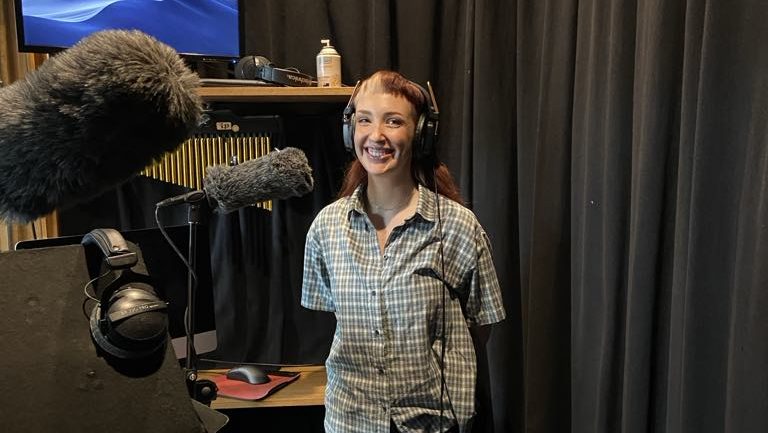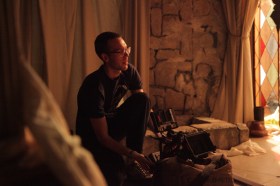A new interim report from Australia’s Productivity Commission has sparked strong backlash from across the country’s creative sectors, with multiple guilds and industry bodies voicing concern over proposed changes to copyright law – changes that would allow AI developers to legally access and use copyrighted content for training purposes.
Titled Harnessing Data and Digital Technology, the 116-page report explores a range of policy reform options, including the potential introduction of a Text and Data Mining (TDM) exception to the Copyright Act.
Such an exception would enable artificial intelligence companies to mine and use copyrighted material without the need for licensing agreements, permission, or remuneration.
In layman’s terms, that means if you have published any kind of creative work in the past, like a film, photograph, script, voice over, book, artwork, and so on, an AI company can data mine that work to produce a ‘new’ artificially generated work for training purposes. This is something the industry is calling a ‘retroactive legalisation of theft’.
Productivity Commission’s TDM exception: quick links
At a glance, the Productivity Commission report has suggested the following improvements, based on four key policy reform areas:
- Enable AI’s ‘productivity potential’
- New pathways to ‘expand data access’
- Supporting safe data access and use through ‘outcomes-based privacy regulation’
- Enhance ‘reporting efficiency, transparency and accuracy’ through digital financial reporting.
Screenwriters and authors raise alarm

The Australian Writers’ Guild (AWG) and Australian Writers’ Guild Authorship Collecting Society (AWGACS) were among the first to criticise the Commission’s direction, calling the proposals a ‘gift’ to foreign tech giants.
‘The Productivity Commissioner has asked, “Are our laws fit for purpose with AI?” but the real question is, why should we change our laws to make things easier for foreign big tech, instead of making things better for Australian workers, people who actually produce things in Australia?’ said AWG and AWGACS CEO Claire Pullen.
The guild warned that existing laws are already being disregarded: ‘The Productivity Commission has conceded that large AI models have already been trained on copyrighted materials owned by Australians.
‘It should be recommending tech companies follow Australian law and stop stealing from creative workers, who are responsible for an industry that contributes over $60 billion to our economy,’ Pullen said.
She also raised concerns about the risk to First Nations intellectual property, saying that Large Language Models (LLMs) and the like could be used to generate counterfeit cultural material without consent or respect for cultural protocols.
‘It seems clear that the Productivity Commission favours weakening our existing laws,’ she added.
MEAA weighs in with concerns
The Media, Entertainment and Arts Alliance (MEAA) has described the report as ‘a blueprint for the wholesale theft of Australia’s art, media, and cultural heritage’.
In a statement issued today, the union condemned the Commission’s resistance to AI-specific legislation and regulation, as well as its suggestion to reconsider the strength of existing copyright laws.
‘There are no recommendations in this report that protect Australian workers or creative assets,’ said MEAA Chief Executive Erin Madeley.
MEAA’s stance is backed by its 2025 AI survey, released earlier this month, which found that more than 90% of media, creative and entertainment workers want the government to regulate AI.
‘Our members have serious concerns about the rapid and unregulated rise of AI and its impact on day-to-day work, job security, and future employment prospects, as well as the impact of the loss of human-led creativity for Australia’s unique culture,’ Madeley said.
The union also criticised the report’s call to ‘pause’ steps toward implementing the federal government’s proposed artificial intelligence guardrails, which include safeguards for transparency, labelling, and liability.
‘Safeguards … are urgently needed to contain the potential harms of this technology,’ the MEAA said.

In addition to economic and cultural impacts, the union highlighted the lack of accountability and compensation for creators whose work has already been scraped by AI developers, often without consent and with no public disclosure.
‘We know that Australian voices, music, and artwork have been scraped overseas, that ChatGPT is substituting the work of our journalists, and that AI-generated clone hosts have been used for radio programs – with no disclosure to audiences,’ said Madeley.
‘Companies like Meta, which recorded $US165 billion in revenue last year, should be paying for the creative assets, works, and ideas that they have stolen, but that is not happening. That’s theft – plain and simple.’
The MEAA welcomed the federal government’s initial response, which appeared to distance itself from the Productivity Commission’s direction. ‘We are pleased the Federal Government has acted quickly to rule out going down this disastrous path,’ the union said.
Nevertheless, MEAA is calling for swift and decisive action: ‘MEAA is calling on the government to reject the Productivity Commission’s short-sighted proposals and stand up for Australian workers by introducing AI-specific regulation as a matter of urgency.’
Music industry calls proposal a ‘framework for theft’
APRA AMCOS and the National Aboriginal and Torres Strait Islander Music Office (NATSIMO) echoed the Writers’ Guild’s concerns, describing the report as a clear step toward legitimising what they claim is already ‘widespread theft’ of creative work.
‘The Commission may couch this as policy exploration, but their direction is clear,’ said APRA Chair Jenny Morris. ‘They’re laying the groundwork to legitimise what they themselves acknowledge is already widespread theft.
‘We’ve witnessed the wholesale ingestion of Australian works by AI companies in the US, where over 30 court cases are currently underway challenging this practice.’
The organisations were especially critical of what they see as a disregard for Indigenous Cultural and Intellectual Property (ICIP).
NATSIMO Director Leah Flanagan said, ‘This interim report exposes a glaring double standard. In the Commission’s 2022 Aboriginal arts and crafts report, they rightly called for firm action against fake Indigenous art … Yet now they seem content to allow the digital theft of ICIP that exists in our songs and music.’
APRA AMCOS’s recent research found that while many musicians are interested in the potential of artificial intelligence (54% of surveyed creators say it can support the creative process) most remain deeply concerned about its unregulated use.
‘We’re not afraid of AI and our members are early adopters who see its potential,’ Morris said. ‘The Commission’s approach threatens to undermine this collaborative progress by removing incentives for ethical AI development.’
Voice actors warn of identity theft and job loss
The Australian Association of Voice Actors (AAVA) issued one of the most comprehensive rejections of the Commission’s report, citing both economic and personal risks to creative workers.
‘A TDM would retroactively legalise the theft of Australia’s creative workers’ intellectual property, voices, image, and work, by foreign multi-nationals who pay little tax and provide minimal jobs in Australia,’ said AAVA President Simon Kennedy.
Kennedy expressed concern over the lack of proposed safeguards around biometric data, stating that voice actors’ work is being scraped to create artificially generated voices, resulting in declining job opportunities across the sector.
‘Not only does this move put the responsibility on Australian creatives to shoulder legal battles against multi-billion-dollar tech companies … it also leaves the door open for AI developers to use the biometric data of every Australian whose voice or image has been recorded to train AI applications,’ he said.
He added: ‘If the Productivity Commission does not see copyright, jobs or a person’s identity as something worth protecting and places the wants of companies such as META and Google first, the question needs to be asked, who is their version of ‘productivity’ actually helping?’
AAVA is calling for an opt-in system for artificial intelligence training, where permission is sought in advance and fair licensing frameworks are implemented.
‘Every Australian should have the right to not participate in the training of an AI-model … and if they choose to do so, they should be compensated fairly,’ Kennedy said.

Voice actor and AAVA member Steph Crothers says the already prevalent use of AI generated voice overs is ‘depressing’, and she has seen it result in a loss of income for her and many others.
‘To know that our pre-existing work is being used to train AI, with no opt-out option, feels violating and devastating,’ she said.
Crothers also noted that artificially generated voice work is a huge deterrent to people wanting to break into the inherently competitive industry.
‘We’re having our voices cloned without our permission, and then we are replaced by those voice clones, without our knowledge or pay,’ she added.
‘I think we’re going to see a lot more voice cloning agreements, where a voice actor gives permission for their voice to be cloned, and then paid royalties every time it’s used.’
Government urged to reject Productivity Commission directions
Industry groups are now calling on the federal government to reject the Commission’s current framing and consult more deeply with Australian creatives, many of whom are already engaging with artificial intelligence.
‘The Commission’s framing reveals their underlying philosophy: they consistently characterise copyright as a barrier to “productivity growth” rather than recognising it as the foundation enabling Australia’s $112 billion creative economy to contribute to national prosperity,’ said AMCOS Chair Jaime Gough.
Whether or not the government moves forward with the proposed TDM exception, the creative sector is making one thing clear: ethical, permission-based artificial intelligence development must remain central to future reform, otherwise it’s just plain theft.
You can read the full Productivity Commission report – Harnessing Data and Digital Technology – here.





